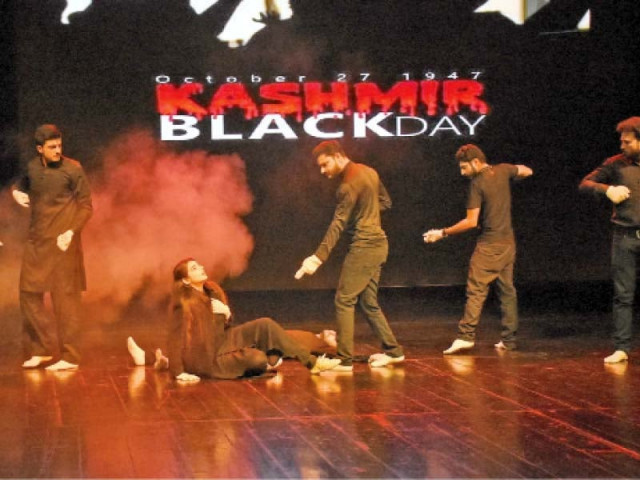UN urged to play its role on Kashmir
Ambassador Akram says India continues to occupy disputed state by both fraud and force

Speakers at an event marking the Kashmir Black Day have called for allowing the oppressed peoples under foreign occupation to exercise their inalienable right to self-determination to usher in peace and stability in the world. The calls were made at a talk on the theme of "Right to self-determination of peoples under foreign occupation", which was hosted by the Pakistani Mission to the UN at the Pakistan House.
Kashmir Black Day is commemorated annually on October 27 to mark the day in 1947 when India, without any legal justification, forcibly took control of the State of Jammu and Kashmir.
Participating in the event were students from the premier universities of New York, media persons as well as officers of the mission. Ambassador Munir Akram, Pakistan's Permanent Representative to the UN, and Prof Abdelhamid Siyam, an academic and senior journalist, in their lectures explained the concept of self-determination in the context of Jammu and Kashmir and Palestine.
In his remarks, Ambassador Akram gave historical background to the different phases of the struggle of Kashmiris for their right to self-determination and paid tributes to their resilience, steadfastness and commitment in the face of Indian brutalities.
While the right to self-determination formed part of the UN Charter and has led to de-colonisation after the World War II, he said, this right has not been implemented in an equitable manner whereby people in Jammu and Kashmir and Palestine still continue to be held in bondage.
Ambassador Akram said that India, which brought the Kashmir dispute to the United Nations, has continue to occupy the disputed state by both fraud and force in contravention of the UN Security resolutions that are binding in nature.
This denial of rights only intensified the Kashmiri people's struggle, especially following India's unilateral and unlawful actions of August 5, 2019, that saw unprecedented lockdowns, systematic human rights violations, and severe restrictions on their freedom.
He reminded the audience that countless reports by international human rights organisations and independent observers have documented instances of excessive use of force, extrajudicial killing enforced disappearances, arbitrary detentions and collective punishment.
He further said that the imposition of media blackouts, restrictions on freedom of expression, and curfews have sought to isolate the people of Kashmir from the world and curtail their ability to seek their right to self-determination.
Ambassador Akram called on the international community and the UN to hold those responsible for such violations accountable.



















COMMENTS
Comments are moderated and generally will be posted if they are on-topic and not abusive.
For more information, please see our Comments FAQ